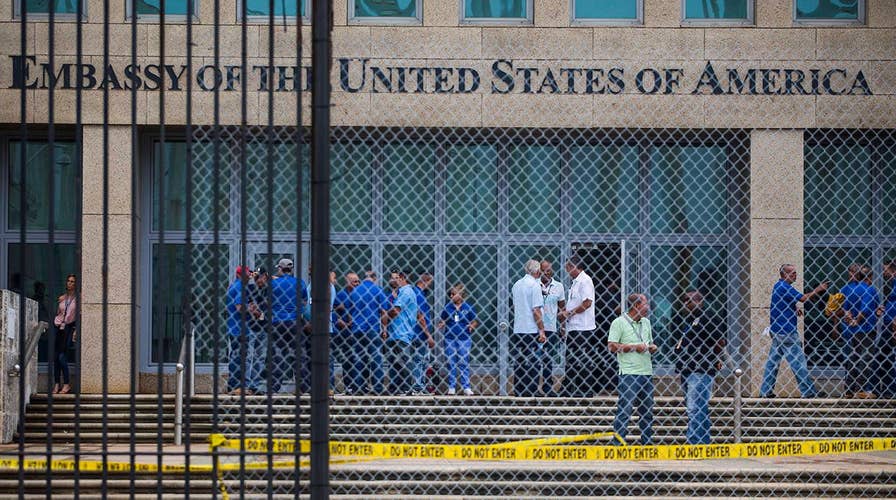Cuba denies responsibility for sonic attacks
Cubans say the allegations are 'science fiction.'
Cuba presented its most detailed defense to date against U.S. accusations that American diplomats in Havana were subjected to mysterious sonic attacks that left them with a variety of ailments including headaches, hearing problems and concussions.
Cuban officials used a prime-time special Thursday titled "Alleged Sonic Attacks," to undermine the Trump administration's assertion that 24 U.S. officials or their relatives had been subjected to deliberate attacks by a still-undetermined culprit.
Many officials reported being subjected to loud, grating noises before falling ill. The U.S. has not accused Cuba of carrying out the attacks, but says that Cuba has not met its obligation to protect diplomats on its territory.
The television special pointed out what it alleged was a lack of evidence for the U.S. accusations. It argued the United States had failed to show that such attacks had actually occurred because it had not given Cuba or the public access to the testimony or medical records of U.S. officials who reported attacks, despite three visits to Cuba by U.S. investigators in June, August and September.
"The members of the U.S. delegation said they don't have evidence that confirms that these reported attacks occurred, and brought up that there was no working theory about the cause of the health problems reported by their diplomats," the program's narrator said.
Top Cuban security officials earlier this week accused President Trump of peddling "science fiction" and "slander" by claiming the country used a mysterious sonic weapon to attack U.S. diplomats and their family members, Reuters reported.
Cuba had already dismissed the allegations that the country was responsible for the episodes, leading to speculation that a third party might have been responsible.
But the Cuban government's new response indicates that it believes such an acoustic attack would be impossible for anyone to perpetrate.
“This is slander by the United States,” said Colonel Ramiro Ramirez, the chief of diplomatic security for the Cuban Interior Ministry, according to Reuters.
The U.S. State Department declined to comment at length on the Cuban critique, saying Thursday that, "the safety and wellbeing of American citizens is our top priority ... We are continuing our investigation into the attacks, and the Cuban government has told us they will continue their efforts as well."
Thursday night's special did not present an alternate explanation for the facts presented by U.S. officials, with one significant exception. Officials with Cuba's Interior Ministry said that U.S. investigators had presented them with three recordings made by presumed victims of sonic attacks and that analysis of the sounds showed them to be extremely similar to those of crickets and cicadas that live along the northern coast of Cuba.
"It's the same bandwidth and it's audibly very similar," said Lt. Col. Juan Carlos Molina, a telecommunications specialist with the Interior Ministry. "We compared the spectrums of the sounds and evidently this common sound is very similar to the sound of a cicada."
The program's narrator said that unnamed "North American researchers" had found that some cicada and cricket noises could be louder than 90-95 decibels, enough to produce hearing loss, irritation and hypertension in situations of prolonged exposure.
Cuba said it had reported its findings on the similarity of the recordings to cricket sounds, and the U.S. had not responded.
The special's narrator said U.S. diplomats continued to travel around Cuba after the incidents began to be reported, and there were requests for dozens of visas for visits by friends and family, something the narrator said undermined U.S. allegations that the diplomats were not being kept safe in Cuba.
The Associated Press contributed to this report








































